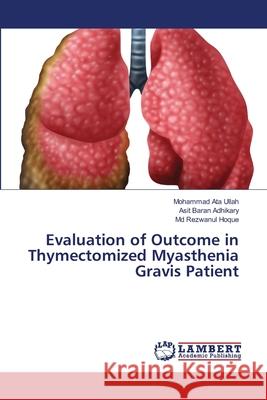Evaluation of Outcome in Thymectomized Myasthenia Gravis Patient » książka
Evaluation of Outcome in Thymectomized Myasthenia Gravis Patient
ISBN-13: 9786139851249 / Angielski / Miękka / 2018 / 108 str.
Myasthenia gravis is an autoimmune disease characterized by a fluctuating weakness of voluntary muscles (Busch et al. 1996). The weakness of myasthenic patients is due to an antibody-mediated autoimmune attack against acetylcholine receptor at neuromuscular junction (Urschel et al. 1998). Normally impulses travel down the nerve and nerve endings release a substance called acetylcholine. Acetylcholine binds or attaches to receptor on the muscle and makes the muscle contract. The strength of the contraction depends on how much acetylcholine the muscles receive. In myasthenia gravis, Immune system produces antibodies that block or destroy many of the receptor sites for acetylcholine in muscle. Because there are fewer receptor sites, the muscles get fewer nerve signals and become weak. In another form of MG, Immune system produces antibodies to the muscle specific tyrosine kinase protein.











